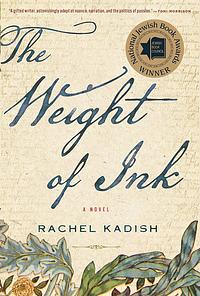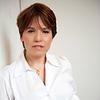Take a photo of a barcode or cover
This is a meticulously researched historical mystery with really nicely drawn characters. Got a bit bogged down in parts but overall enjoyable.
4.5. Academic, historical, emotional, philosophical. Absolutely worth reading.
This book is virtually flawless. Well written, cunningly structured, thoroughly researched, philosophically inspiring, with nuanced characters and realistic character development. What more do you want?!
(Note: The following contains some plot revelations, but nothing that would spoil the reading of the book.)
In the present, Professor Helen Watt (a dry, harsh British spinster who had once loved and left) and doctoral candidate Adam Levy (a flippant American philanderer who finds he has impregnated the one girl he can't forget) are brought to assess a cache of old papers found in a hidey hole beneath the stairs of an old manor. These papers, a mix of Hebrew, Latin, Portuguese, and English, are from the 1660s and contain surprising references to heretical philosophers like the Jewish apostate Baruch Spinoza. These were written for a rabbi (blinded by torture during the Inquisition) by his female scribe! Also in the present, we have delightfully high-strung librarians, a jerk of a department head, a rich couple struggling to give their empty relationship meaning, as well as flashbacks to Helen's romance with an Israeli soldier in the 1960s.
The book weaves between the present storyline and the story of Ester Valesquez, our scribe, who is uncharacteristically educated for a woman of the time. With lush details of London during the great plague - including the fashionable beauty patches I had never heard of before - Kadish teases out her story of the pursuit of knowledge and all the obstacles a female of the time would face ... including love. The wise rabbi, the damaged but strong maid Rivka, the vapid young Mary whom Ester is paid to chaperone, all sorts of dashing yet carelessly cruel men, even the whole Jewish community are all richly drawn, as is the history of Ester's mother and grandmother.
In unfolding layers, the story is revealed both to the reader and to the fictitious present-day scholars, but not always at the same time. It's an intellectual mystery. Though the book is long, I found it riveting.
-----------------
Interestingly and impressively, Kadish wrote her 1660s manuscripts in "Bygonese," an invented Old English made approachable for the modern reader.
(Note: The following contains some plot revelations, but nothing that would spoil the reading of the book.)
In the present, Professor Helen Watt (a dry, harsh British spinster who had once loved and left) and doctoral candidate Adam Levy (a flippant American philanderer who finds he has impregnated the one girl he can't forget) are brought to assess a cache of old papers found in a hidey hole beneath the stairs of an old manor. These papers, a mix of Hebrew, Latin, Portuguese, and English, are from the 1660s and contain surprising references to heretical philosophers like the Jewish apostate Baruch Spinoza. These were written for a rabbi (blinded by torture during the Inquisition) by his female scribe! Also in the present, we have delightfully high-strung librarians, a jerk of a department head, a rich couple struggling to give their empty relationship meaning, as well as flashbacks to Helen's romance with an Israeli soldier in the 1960s.
The book weaves between the present storyline and the story of Ester Valesquez, our scribe, who is uncharacteristically educated for a woman of the time. With lush details of London during the great plague - including the fashionable beauty patches I had never heard of before - Kadish teases out her story of the pursuit of knowledge and all the obstacles a female of the time would face ... including love. The wise rabbi, the damaged but strong maid Rivka, the vapid young Mary whom Ester is paid to chaperone, all sorts of dashing yet carelessly cruel men, even the whole Jewish community are all richly drawn, as is the history of Ester's mother and grandmother.
In unfolding layers, the story is revealed both to the reader and to the fictitious present-day scholars, but not always at the same time. It's an intellectual mystery. Though the book is long, I found it riveting.
-----------------
Interestingly and impressively, Kadish wrote her 1660s manuscripts in "Bygonese," an invented Old English made approachable for the modern reader.
an aging and acerbic academic is confronted with the choices she's made by way of the documents of her 17th century foil, a female scribe. it's an interesting story.. i just didn't think it was 580 pages interesting.
“…the world and I have sinned against each other” states Esther Velasquez in the words of her confession (vidui). No words seem more appropriate be they written today or in the 17th century as one sums up a life of honor, courage, hard choices, pain and learning.
“…I’ve let my life become a museum”, writes Helen Wats to her research assistant, Aaron Levy and warning him not to do the same.
Two strong women of learning, one defying the rules and mores of her day and her people to fulfill the desire to use her God given intellect to ponder the most important questions of existence and faith. The other substituting scholarship for the desires of her heart.
In the time of the inquisition in Spain and Portugal Jews fled to Amsterdam to escape death or conversion. There they created a community that still exists today. Expelled from England in the 1390 began to return with the reformation. Esther Velázquez of the Portuguese Jewish community in Amsterdam comes to London at this time with Rabbi Ha’Cohane Mendez as part of his household, thus enfolds the story within the story. Esther’s story is discovered by retiring historian Helen Wats and her Asst Aaron Levy a graduate student foisted on her by the history department.
An excellent read. It is especially meaningful following events of October 7.
“…I’ve let my life become a museum”, writes Helen Wats to her research assistant, Aaron Levy and warning him not to do the same.
Two strong women of learning, one defying the rules and mores of her day and her people to fulfill the desire to use her God given intellect to ponder the most important questions of existence and faith. The other substituting scholarship for the desires of her heart.
In the time of the inquisition in Spain and Portugal Jews fled to Amsterdam to escape death or conversion. There they created a community that still exists today. Expelled from England in the 1390 began to return with the reformation. Esther Velázquez of the Portuguese Jewish community in Amsterdam comes to London at this time with Rabbi Ha’Cohane Mendez as part of his household, thus enfolds the story within the story. Esther’s story is discovered by retiring historian Helen Wats and her Asst Aaron Levy a graduate student foisted on her by the history department.
An excellent read. It is especially meaningful following events of October 7.
I found this story a little slow at first but soon was captivated by the 17th century Jewish woman, Ester and her story. The author cleverly tells her story through flashbacks to Ester’s time as well as through a modern woman’s research of documents from Ester’s time. A fascinating cast of characters,many unexpected twists and turns of the plot, a glimpse into the past all make this book delightful.
adventurous
challenging
dark
emotional
informative
inspiring
mysterious
reflective
tense
medium-paced
Plot or Character Driven:
A mix
Strong character development:
Yes
Loveable characters:
Complicated
Diverse cast of characters:
Yes
Flaws of characters a main focus:
Yes
Did not finish - made it a little over halfway (the 300s) before putting this down. I could not get into the story line - just didn’t find it interesting. Also, it’s sooo long - it could have benefited from a good editor. The amount of detail made the story move so slowly - by page 300 hardly anything had happened. I also didn’t like any of the characters. (sorry Meg!)
(4.5) Though I have docked half a star for some excessive description, it might only have bothered me because I'm a pretty impatient reader. This is beautifully written with very interesting characters and settings--scholars/historians, rare manuscript library/ians, non-conformist 17th-century women, the Inquisition, and London during the Plague!
If any of that interests you and you want to immerse yourself in a deep and satisfying novel, check this out!
If any of that interests you and you want to immerse yourself in a deep and satisfying novel, check this out!


